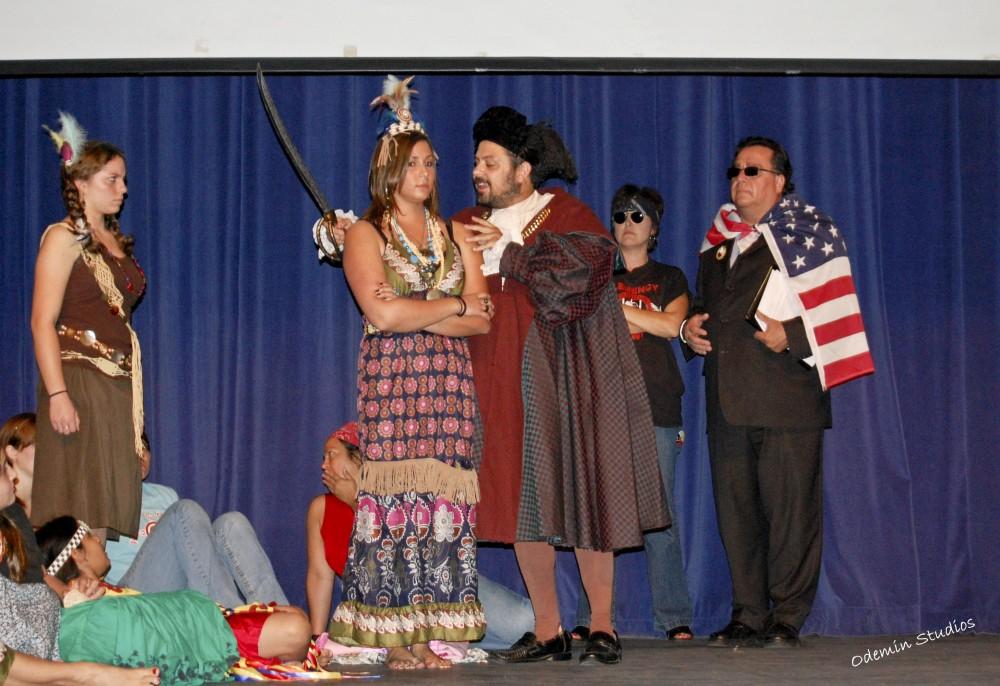‘Rethinking Columbus’ event to offer ‘kaleidoscope of experiences’

Courtesy Photo / Dee Ann Sherwood Bosworth Rethinking Columbus Flyer
Oct 10, 2010
Traditionally Columbus Day celebrates the discoverer of the New World, but this year, a panel of experts welcome a different perspective on the national holiday.
“Rethinking Columbus: Discover the American Indian Perspective” will begin with a multimedia presentation that will include drummers, singers and video clips at noon in the Loosemore Auditorium.
At 4:30 p.m. today in the Louis Armstrong Theatre, there will be a theatrical re-enactment of the founding of America followed by a panel discussion.
“Our aim is not to make people feel guilty, (but) rather to rethink how we got here,” said Dee Ann Sherwood Bosworth, director of Intercultural Training and coordinator of the event.
This event will offer a “kaleidoscope of experiences,” she said. It is LIB 100 approved.
The multimedia presentation includes video clips from “Good Morning America,” “The Canary Effect,” and footage of the Denver Native American student protest, Bosworth said. There will be several musical pieces, including one with GVSU alumni and community members playing an o de land drum.
The theatrical presentation is reflective of how immigrants are treated in the form of satire, which Bosworth terms “Colbert-like,” weaving current policies with history.
She said the indigenous people may ask Columbus for his papers and then call Homeland Security.
“I hope people walk away from this and begin to ask questions and connect with the American Indian community,” Bosworth said. “Explore, challenge and question what you have learned from your K-12 experience.”
Columbus Day, annually celebrated on the second Monday of October, is one of only two holidays in America celebrating a person, the other of which being Martin Luther King Jr. day.
A bill introduced by New York Senator Timothy Sullivan and signed by New York Governor Charles Evans Hughes led to its observance in New York in the early 1900s. In 1963, Representative Roland Libonati introduced a bill making it a national holiday.
Countries in Latin America and South America celebrate Día de la Raza, the Day of the Race, which commemorates the encounter of European and native cultures.
Columbus sailed searching for a trade route to the East Indies with funding from Spain. He did not find gold, so he brought back indigenous people, said GVSU professor and panelist Scott Stabler. He added that Columbus started the slave trade in the Western Hemisphere.
Stabler said he cut off the hands of those who did not make their quota in gold and enslaved women in one of the earliest forms of sexual slavery.
Columbus committed genocide, according to Article 2 of the United Nations’ “Convention on the Prevention and Punishment of Genocide.” He murdered, harmed and inflicted poor conditions to bring about the destruction of indigenous people.
Simone Jonaitis, executive director of continuing education through the Brooks College of Interdisciplinary Studies, said this is not the message reflected in a national holiday because people want to feel good about their country.
“History books are written from the perspective of the writer,” she said. “You can always write from one side, but things are multi-dimensional.”

























